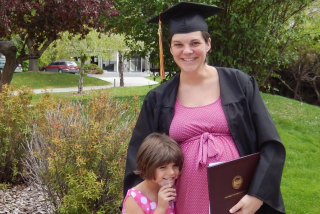Children and parenting in the 21st century
If you’ve been anywhere near the ball pit at IKEA — that trance-inducing sphere of cacophonous tykes and colored balls — you know we’re a child-obsessed nation. Manuals on how to produce and raise perfect offspring remain a bestselling literary genre. Celebrities get more attention for pregnancies than for Oscar nods. Even politicians have taken baby kissing to new heights. Mike Huckabee, for one, thinks legalized abortion is a major cause of illegal immigration (that unwanted bun in the oven could grow up to be a low-wage, easily exploited worker one day).
But reports in recent weeks have suggested that the pitter-patter of little feet can sound more like a jackhammer — and not just to the far-flung, vacation-taking, disposable-income-flashing, pet-doting heathens known as the childless-by-choice crowd. A July 4 New York Magazine cover story by Jennifer Senior cited numerous studies showing that people with children are no happier than people without them, and in some cases are less so, and offered up a litany of grim data proving that contemporary childrearing lacks the soft-focus reverie of a Pampers commercial.
There is, for instance, the study of 909 Texas women who ranked child care 16th in pleasurability out of a list of 19 activities (housework placed higher). There’s the study wherein long-married couples documented their disagreements and found that 40% of their arguments were about their kids. Then there’s the Scottish paper published last year in the Journal of Happiness Studies (yes, this is a real journal; no, Gwyneth Paltrow has not graced the cover) whose findings had to be retracted after a coding error rendered a previously published assertion — that life satisfaction increased when people had children and improved when they had even more — flatly wrong. The corrected phrasing: “The effect of children on the life satisfaction of married individuals is small, often negative, and never statistically significant.”
On top of that, a new Pew study shows that the number of women forgoing motherhood has nearly doubled since 1976. Back then, 10% of women ages 40 to 44 had never had children. Today the figure is 18%. And sorry, Mike Huckabee, it’s not because they’re getting abortions and depriving our factories and fields of red-blooded American workers. According to data from the Guttmacher Institute, 61% of women who terminate pregnancies already have one or more children. As for the camp that worries about how lack of fecundity among educated American elites will cause a birth dearth on a par with certain European countries, the Pew study showed that childlessness among women with advanced degrees has decreased since 1994, dipping from 31% to 24%.
But that stat is an outlier. For most of us, parenthood seems to be suffering a bit of an image crisis — and not only because times are hard. To my mind, the most compelling explanation comes from psychologists W. Keith Campbell and Jean Twenge, cited in the New York Magazine article. They conducted a study of children and marital satisfaction reaching back to the 1970s and found, writes Senior, “that every successive generation was more put out by having them than the last — our current one most of all.”
The chief reason, the researchers said, is that each generation marries and starts families at a later age than the last. In other words, parents of young kids today have had a bigger taste of freedom — and therefore feel the loss of it more acutely — than their parents did. Hence that distinctly 21st century malady known as having nostalgia for your freewheeling 30s.
But before we infer from all this that those 18% of women who are likely to remain childless have simply outsmarted their weary counterparts, perhaps we should revisit the logic of our friend Mike Huckabee. If, as he seems to be suggesting, having more children will eliminate the need for immigrant labor, doesn’t it stand to reason that at least some of the costs of raising kids could be recouped by using them to amplify our freedom? As live-in house cleaners, perhaps? Given the proper training, couldn’t they graduate into being their own nannies, allowing their parents to gallivant among wine bars and late-night concerts and then return home to polished floors and folded laundry?
So get those kids out of the IKEA ball pit and on to harder labor — for instance, assembling IKEA furniture. Suddenly this parenting thing is sounding a whole lot better.
More to Read
Sign up for our Book Club newsletter
Get the latest news, events and more from the Los Angeles Times Book Club, and help us get L.A. reading and talking.
You may occasionally receive promotional content from the Los Angeles Times.







